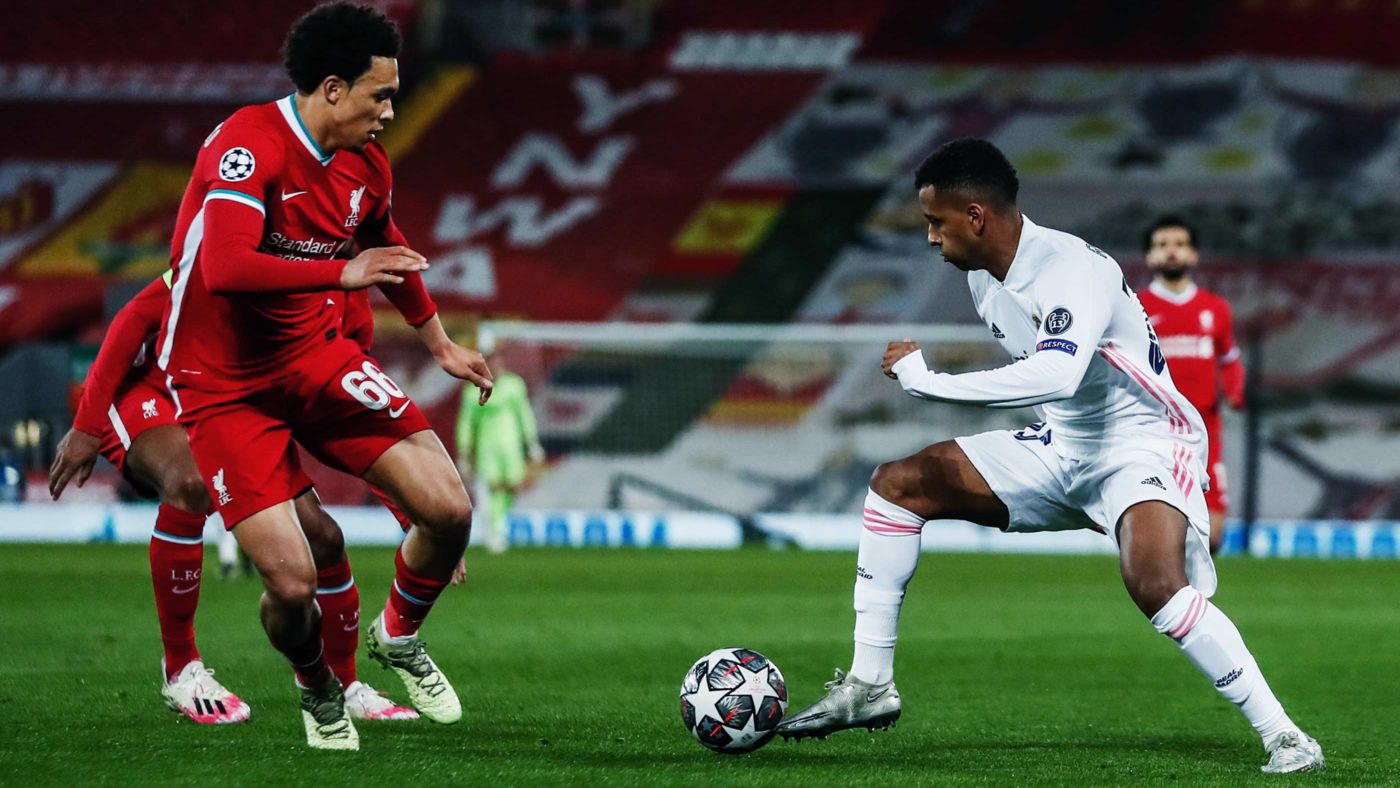Unanimity in football is a rare thing, but the goons behind a new European Super League seem to have pulled it off.
Fans groups, ex-players, Fifa, Uefa and the various national leagues are all as one in condemning the idea. The ‘ESL’ has even managed to unite Boris Johnson and Emmanuel Macron in umbrage.
To briefly summarise, in a statement late last night 12 of Europe’s biggest teams – six of them English, three Italian, three Spanish – announced their intention to launch a new mid-week competition, with games potentially starting as early as August.
Those not especially bothered about the Beautiful Game may wonder what all the fuss is about. Isn’t this just adding another competition to the endless different versions of football they already have to pretend to be interested in?
The answer is yes and no. It is yet another competition, but it’s one that, if followed through, would change the face of the game – and not in a good way.
Much of the commentary so far has involved spluttering about the fact that this decision is all about greed, with the clubs involved wanting to hoover up as much TV money as they can while leaving everyone else out in the cold. And it’s true that the raw figures look pretty staggering, with the ESL clubs set to split £3.5bn to “support their infrastructure investment plans and to offset the impact of the Covid pandemic”.
To describe this as simply a case of greedy fat cats vs the little guys doesn’t really get to the nub of the issue though. After all, the ‘too much money in football’ ship sailed a long, long time ago. For decades even mediocre players have been trousering lottery-win salaries, often alongside equally lucrative sponsorship deals. Owners, managers, agents and various other hangers-on have also feasted on the untold riches in Europe’s top leagues.
The avalanche of cash hasn’t been entirely a bad thing. Facilities for fans and players alike are much better than when I first started going to games in the mid-1990s, there’s less violence, and the standard of play has improved, with clubs now employing a vast retinue of support staff with ever more granular job titles (Liverpool famously employ a ‘throw-in coach’, for instance).
What really rankles about the ESL proposal isn’t the money, it’s that the founders of the new league are proposing a competition where they can’t lose. Rather than qualification on merit, they want a league where the founding members can’t be relegated, effectively turning top-level football into a cartel. There might be five slots set aside for new clubs to enter each year, but the core group would remain untouched. Finals and winning trophies are one thing, but the dismay and jubilation of promotion and relegation are every bit as important a part of what makes the game so enthralling. To really rub salt in the wound, some of the clubs involved are nowhere near Europe’s best at the moment on the pitch and would not qualify for such a competition on their current sporting merits (I include my own beloved, perma-disappointing Tottenham Hotspur in that number, by the way).
It’s the idea of a non-competition, not just the financial element, that has so disgusted the likes of Gary Neville and Rio Ferdinand, two supreme competitors who have won everything the club game has to offer. Neville’s priceless Sky Sports rant last night should be watched even by those who have little interest in football, purely as an example of almost effortless rhetoric.
The good news, though, is that the European Super League almost certainly won’t happen. The top clubs have been floating a competition of this sort on and off for years on end with little progress. Granted, this one looks to have been developed a bit further than the drawing board stage, but it still looks more than anything like a bargaining tool to secure reform to the existing Champions League competition that will benefit the bigger clubs.
The strength of reaction from the football authorities also suggests it is going to struggle to get off the ground. These are not idle threats either, given that the various national leagues could potentially bar ESL clubs from competing in their own (very lucrative) domestic leagues, and the governing bodies could even stop players representing their national sides.
If it does come to that, I very much hope the authorities follow through on their threats and bring the ESL crashing down. Much like the free market capitalism we’re such fans of on this website, competition is integral to what makes football tick. This kind of closed shop, or ‘socialism for the rich’ is a recipe for mediocrity and stagnation, the antithesis of what makes elite sport, well, elite. In proposing such a set-up, the owners involved have only showed how little they understand the ethos of the game, and most fans’ sense of fair play.
Click here to subscribe to our daily briefing – the best pieces from CapX and across the web.
CapX depends on the generosity of its readers. If you value what we do, please consider making a donation.


